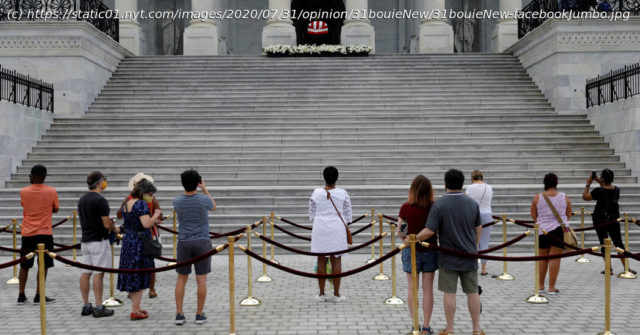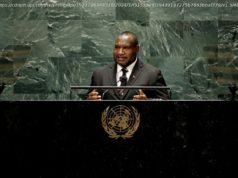It is an ethic, a way of living, something that you must do in order to summon it into existence.
In his final essay, published on Thursday in The New York Times, Representative John Lewis of Georgia offered welcome words of encouragement and wisdom for everyone protesting discrimination and injustice. He also made a crucial point about our political system, one that bears repeating as we face powerful threats to self-government and the rule of law.
“Democracy is not a state,” Lewis wrote. “It is an act, and each generation must do its part to help build what we called the Beloved Community, a nation and world society at peace with itself.”
Americans have lived with democratic institutions for so long that it’s become easy to think of democracy as something that is defined and embodied by those institutions. But the Constitution and Congress and elections and courts aren’t democracy themselves as much as they’re instruments for its realization. Democracy itself is something larger and more expansive; it is an ethic, a way of living and, as Lewis wrote, an act, something that you must do in order to summon it into existence.
I am reminded, by all of this, of John Dewey, the American philosopher and psychologist who devoted his long career to the explication of life in a modern industrial democracy and its implications for a wide range of social and political activity.
In “The Ethics of Democracy,” an 1888 essay written while he was teaching at the University of Michigan, Dewey described his expansive vision of democracy. Against contemporary skeptics who saw democracy as little more than simple majority rule by ignorant, isolated individuals, he argued that we should understand democracy as “a form of moral and spiritual association” that takes “personality” — meaning individual potential — as its “first and final reality.” Democracy recognizes the “infinite and universal possibility” within each person and seeks to foster its expression, not for “mere self-assertion” or “unregulated” desire but for “an individualism of freedom, of responsibility, of initiative to and for the ethical ideal.”
For Dewey, democracy was an ethical project for individual and collective flourishing.






